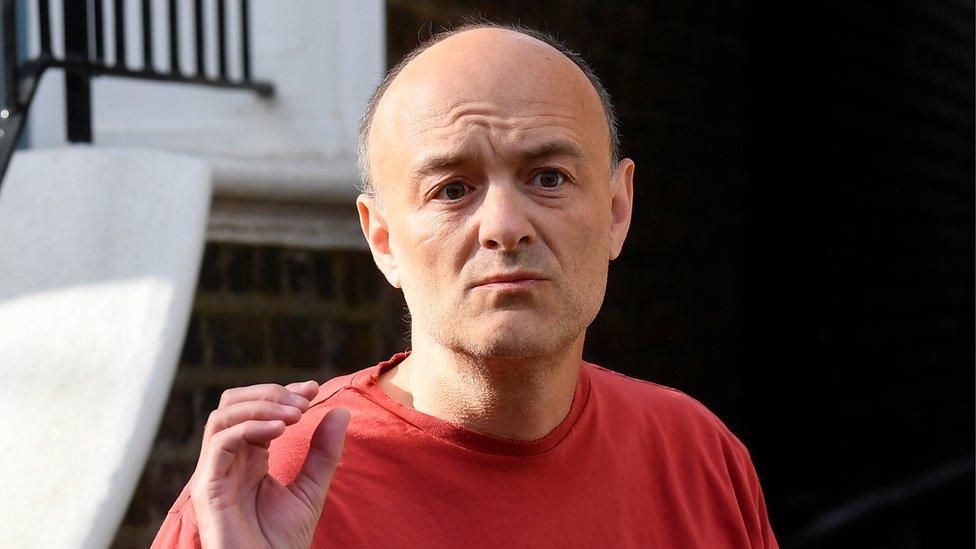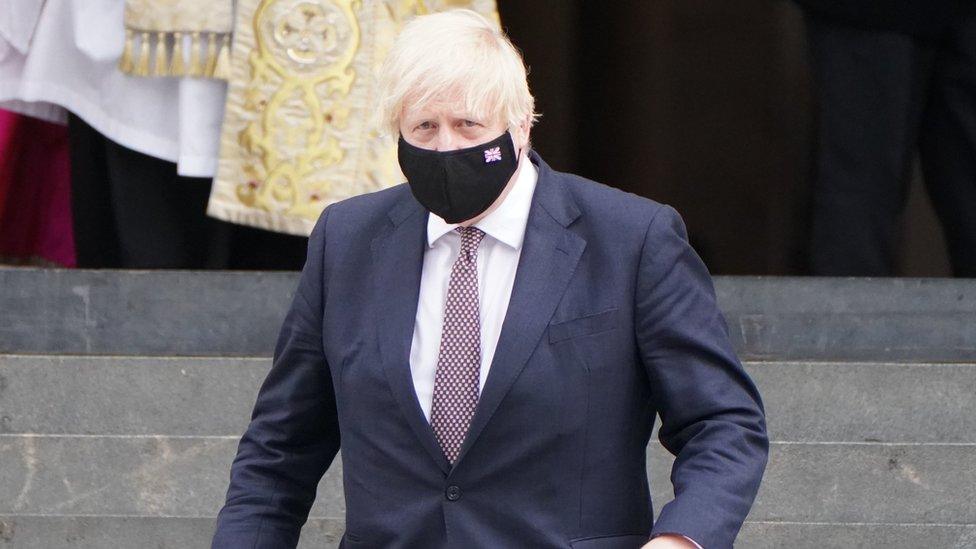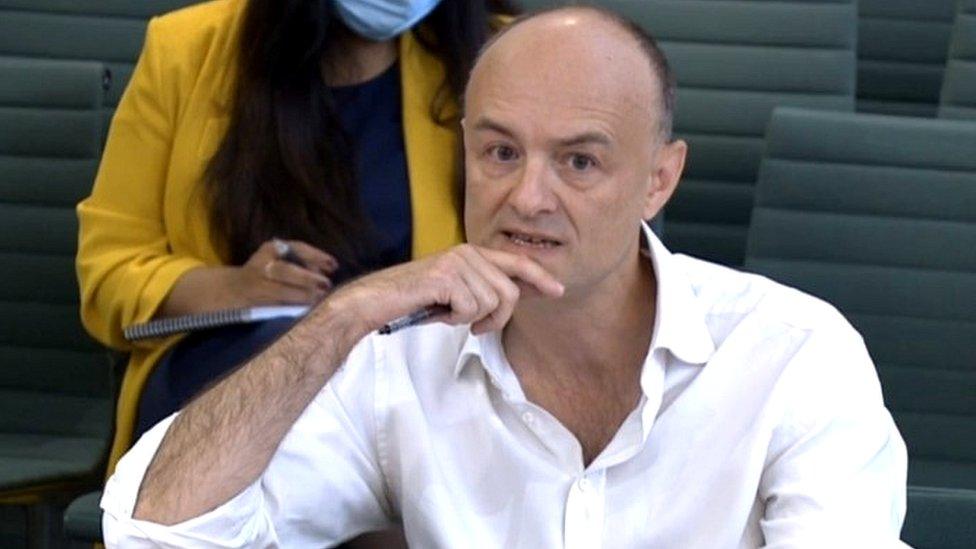Boris Johnson admits it's ludicrous he's PM, says Cummings
- Published

Dominic Cummings has redoubled his criticism of his old boss Boris Johnson, saying the PM cannot distinguish "between truth and lies".
The former top adviser said Mr Johnson "lies so blatantly, so naturally, so regularly" that he sees "no real distinction".
In a blog post, Mr Cummings claimed Mr Johnson "regularly admits it's ludicrous he's prime minister".
The PM's official spokesman rejected the former aide's claims about lying.
"I don't plan to engage with every allegation made," he added when asked about the blog by reporters on Monday.
It is the latest broadside against the PM from Mr Cummings since he was forced out of his No 10 role last year, following an internal power struggle.
But the former aide also defended his decision to join Mr Johnson's top team in 2019, despite believing him "unfit to be PM".
In a post to paying subscribers to his Substack website, external, Mr Cummings claimed Mr Johnson "regularly admits it's ludicrous he's prime minister".
He wrote that the PM is "hopeless at bureaucratic infighting," and "routinely says and does things so foolish that people are open-mouthed".
Mr Cummings added he knew Mr Johnson was "in any objective sense, unfit to be PM" when he agreed to become his senior adviser in summer 2019.
'Even bigger disaster'
But despite this, he added, he and former members of the Vote Leave campaign decided to "roll the dice" and join his No 10 team anyway, believing his defects could be "partly mitigated" in office.
He added that they also believed that, without their help, the Conservatives would fail to resolve the post-referendum "constitutional crisis".
This, he wrote, could have led to a second referendum and former Labour leader Jeremy Corbyn winning power, which would "probably be an even bigger disaster".
He also justified the move as a chance to deliver post-Brexit political reforms, adding they thought Mr Johnson's weaknesses could be "turned to advantage".

Boris Johnson has been repeatedly criticised by his former top adviser
He wrote that Mr Johnson's "ignorance of Whitehall" and his "desire to enjoy himself rather than work hard" provided a "very weird opportunity to force through certain important things that the system left to itself won't do".
"Precisely because he doesn't know what he's doing, we may be able to get him to agree things 'the system' will think are 'extreme' but we think are necessary," he added.
"As often in politics the immediate prospect of a second referendum and Corbyn - with all the misery, poverty and damage to democracy this would bring - outweighed calculations about the distant future."


Dominic Cummings has been openly critical of the prime minister's abilities - or lack of them - before.
In his latest blog he suggests that the PM - who has intermittent spurts of self-awareness, according to his former aide - agreed with him.
He said in 2016 Boris Johnson told him it would be "ludicrous" for him to become prime minister.
But did Mr Johnson really believe that?
After all, he is said to have uttered this self-assessment "with a laugh", and adding it was no more ludicrous than having David Cameron or George Osborne in No10.
Mr Cummings argues that a flawed Mr Johnson was better than the alternative of Jeremy Corbyn and a second referendum, but paints an unflattering picture of "government by adviser" - that Mr Johnson's apparent lack of interest in policy and aversion to hard work allowed his aides to step in and refocus the government's attention away from Brussels and towards science and technology.
His is only one side of the story, of course, and Mr Cummings will be keen to convince us that his decision to help Boris Johnson - whom he says is unfit to be PM - to call and win an election has had some lasting benefits.

Downing Street exit
Mr Cummings became an adviser to the prime minister in July 2019, when Mr Johnson entered No 10 after winning the Conservative Party leadership race, following the resignation of Theresa May.
He left his role late last year, following internal battles over his role as Mr Johnson's chief adviser.
Since then he has used his personal blog, Twitter account and an appearance in May in front of MPs to criticise the government's Covid strategy and Mr Johnson personally.
This has included publishing text messages sent to him by Mr Johnson last year - including ones in which the PM apparently described former health secretary Matt Hancock as "hopeless".
In a subsequent post on Monday, he also took aim at the expected easing of the majority of England's remaining Covid rules on 19 July, adding it was "obviously not" the right call.
Related topics
- Published27 May 2021

- Published17 June 2021
